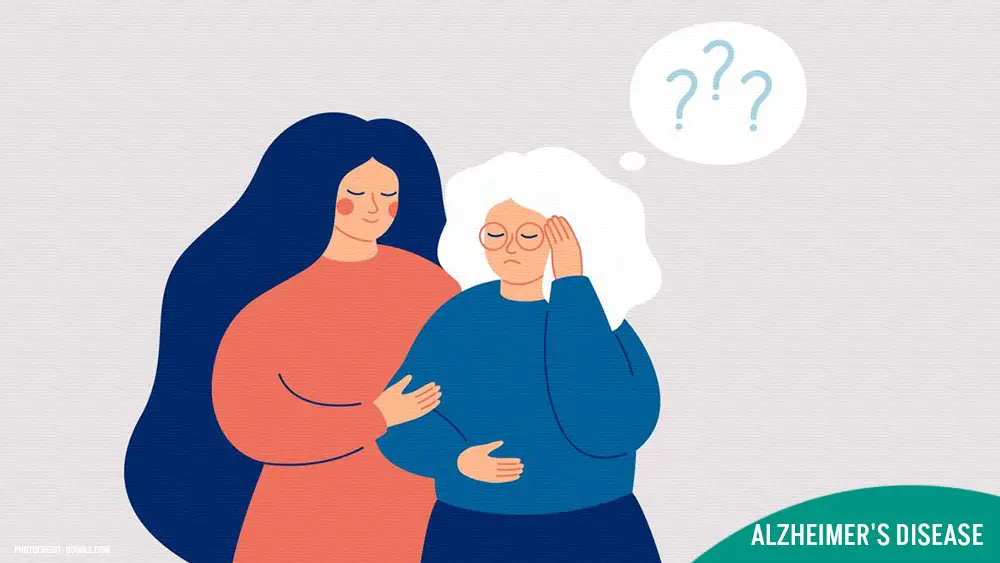
NEUROSCIENCE
Alzheimer's Disease: Understanding, Coping, and Hope
-
 Rahul Priydarss
Rahul Priydarss - March 16, 2024
Explore a comprehensive guide to Alzheimer’s disease, covering its definition, symptoms, diagnosis, treatment options, and innovative research. Gain insights into breaking down misconceptions, addressing stigma, and fostering awareness to support individuals and caregivers affected by Alzheimer’s.
Introduction of Alzheimer’s Disease:
Alzheimer’s disease is a progressive neurological disorder that primarily affects older adults, although it can also occur in younger individuals. It is the most common cause of dementia, a term used to describe a decline in cognitive function severe enough to interfere with daily life. Alzheimer’s disease gradually impairs memory, thinking skills, and eventually, the ability to carry out simple tasks.
The hallmark characteristic of Alzheimer’s disease is the accumulation of abnormal protein deposits in the brain. These deposits, called amyloid plaques and tau tangles, interfere with the normal functioning of brain cells, leading to their degeneration and death. As the disease progresses, the brain tissue shrinks, affecting nearly all areas of the brain, including those responsible for memory, language, judgment, and behavior.

Table of Contents
Definition and Brief Overview of Alzheimer’s Disease:
Definition: Alzheimer’s disease is a progressive neurological disorder characterized by a decline in cognitive function and memory, leading to impairment in daily activities. It is the most common cause of dementia among older adults.
Brief Overview: Alzheimer’s disease gradually impairs memory, thinking skills, and eventually, the ability to carry out simple tasks. The primary hallmarks of the disease are the accumulation of abnormal protein deposits in the brain, namely amyloid plaques and tau tangles, which interfere with normal brain function. While the exact cause is not fully understood, age, genetics, and lifestyle factors are believed to contribute to its development. Currently, there is no cure for Alzheimer’s disease, and available treatments focus on managing symptoms and slowing its progression. As the population ages, Alzheimer’s poses significant challenges, emphasizing the need for continued research, early detection, and support for affected individuals and their families.
Causes of Alzheimer’s Disease:
Alzheimer’s disease is a complex condition with multiple factors contributing to its development. While the exact cause remains unclear, several key factors are believed to play a role.
Genetic Factors: Certain genetic mutations have been linked to an increased risk of developing Alzheimer’s disease. Mutations in genes such as amyloid precursor protein (APP), presenilin 1 (PSEN1), and presenilin 2 (PSEN2) can influence the production and accumulation of amyloid plaques in the brain, a hallmark characteristic of Alzheimer’s.
Environmental Factors: Environmental factors may also contribute to the development of Alzheimer’s disease. Chronic exposure to toxins, pollutants, or heavy metals could potentially damage brain cells and increase the risk of neurodegenerative diseases.
Lifestyle Choices: Lifestyle factors, including diet, exercise, and cognitive stimulation, play a significant role in brain health and may influence the risk of developing Alzheimer’s disease. A diet high in antioxidants, omega-3 fatty acids, and fruits and vegetables may help protect against cognitive decline. Regular physical exercise has been associated with a reduced risk of Alzheimer’s, while engaging in mentally stimulating activities, such as reading, puzzles, or learning new skills, may help maintain cognitive function.
Other Risk Factors: Other factors such as age, gender, and certain medical conditions like cardiovascular disease or diabetes may also increase the risk of developing Alzheimer’s disease.
Symptoms of Alzheimer’s Disease:
Alzheimer’s disease is characterized by a gradual onset and progression of symptoms that worsen over time. Common symptoms include.
Memory Loss: Individuals may experience difficulty remembering recently learned information or important dates and events. They may repeatedly ask the same questions or rely heavily on memory aids.
Difficulty with Problem-Solving and Planning: Tasks involving problem-solving, planning, and organization may become increasingly challenging. This can impact a person’s ability to manage finances, follow recipes, or complete tasks at work.
Confusion and Disorientation: People with Alzheimer’s may become disoriented, especially in unfamiliar environments. They may lose track of time, forget where they are or how they got there, and struggle with spatial awareness.
Language and Communication Problems: Individuals may have trouble finding the right words, following conversations, or understanding complex instructions. They may also experience difficulty writing or reading.
Changes in Mood and Behavior: Alzheimer’s can lead to changes in mood and behavior, including increased irritability, anxiety, depression, and agitation. Individuals may exhibit uncharacteristic behaviors or withdraw from social activities.
Decreased Judgment and Decision-Making Skills: As the disease progresses, individuals may demonstrate poor judgment and decision-making abilities. They may make impulsive or risky choices, such as giving away money or trusting strangers.
Loss of Initiative and Motivation: People with Alzheimer’s may lose interest in hobbies, activities, or personal hygiene. They may require prompting or assistance to initiate tasks or activities.
Difficulty with Motor Functions: In the later stages of the disease, individuals may experience difficulties with motor functions, such as walking, balance, and coordination.
Diagnosis for Alzheimer’s Disease:
Diagnosing Alzheimer’s disease involves a comprehensive assessment that includes medical history, physical examination, cognitive testing, and laboratory tests. The process typically involves the following steps.
Medical History and Physical Examination: The healthcare provider will review the individual’s medical history, including any symptoms, family history of dementia, and overall health. A thorough physical examination may be conducted to rule out other potential causes of cognitive decline.
Cognitive Testing: Cognitive assessments, such as the Mini-Mental State Examination (MMSE) or the Montreal Cognitive Assessment (MoCA), are commonly used to evaluate memory, language, attention, and other cognitive functions. These tests help identify any cognitive impairment and assess the severity of symptoms.
Neurological Evaluation: A neurological examination may be performed to assess reflexes, muscle strength, coordination, and sensation. This helps identify any neurological abnormalities that may be contributing to cognitive decline.
Laboratory Tests: Blood tests may be conducted to rule out other medical conditions that could cause similar symptoms, such as thyroid dysfunction, vitamin deficiencies, or infections. Imaging studies, such as magnetic resonance imaging (MRI) or positron emission tomography (PET) scans, may also be used to assess brain structure and function, detect changes associated with Alzheimer’s disease, and rule out other potential causes of cognitive impairment.
Assessment of Functional Abilities: Evaluating the individual’s ability to perform daily activities, such as dressing, bathing, and managing finances, provides insight into the impact of cognitive decline on functional independence.
Consultation with Specialists: In some cases, referral to specialists, such as neurologists, geriatricians, or neuropsychologists, may be necessary for further evaluation and management.

Treatment Options for Alzheimer’s Disease:
While there is currently no cure for Alzheimer’s disease, several treatment options are available to help manage symptoms, slow disease progression, and improve the quality of life for individuals affected by the condition. These treatment approaches include.
Medications:
- Cholinesterase Inhibitors: Drugs such as donepezil (Aricept), rivastigmine (Exelon), and galantamine (Razadyne) are commonly prescribed to help improve cognitive symptoms by increasing levels of acetylcholine, a neurotransmitter involved in memory and learning.
- Memantine (Namenda): This medication works by regulating the activity of glutamate, another neurotransmitter involved in learning and memory. It is often prescribed in moderate to severe Alzheimer’s disease.
- Combination Therapy: In some cases, a combination of cholinesterase inhibitors and memantine may be prescribed to optimize symptom management.
Symptomatic Management:
- Behavioral and Psychological Interventions: Counseling, support groups, and cognitive behavioral therapy can help individuals and their caregivers cope with the emotional and behavioral challenges associated with Alzheimer’s disease.
- Occupational Therapy: Occupational therapists can help individuals with Alzheimer’s disease develop strategies to maintain independence in daily activities and adapt to changes in cognitive function.
- Physical Exercise: Regular physical activity has been shown to improve mood, cognitive function, and overall well-being in individuals with Alzheimer’s disease.
Lifestyle Modifications:
- Healthy Diet: A nutritious diet rich in fruits, vegetables, whole grains, lean proteins, and omega-3 fatty acids may help support brain health and reduce the risk of cognitive decline.
- Regular Exercise: Engaging in regular physical exercise, such as walking, swimming, or yoga, can help improve cardiovascular health, reduce stress, and promote overall brain function.
- Mental Stimulation: Activities that challenge the brain, such as puzzles, games, reading, and learning new skills, may help maintain cognitive function and slow disease progression.
Clinical Trials: Participation in clinical trials investigating new treatments and interventions for Alzheimer’s disease may provide access to experimental therapies and contribute to the advancement of scientific knowledge about the condition.
Research and Innovations in Alzheimer’s Disease:
Alzheimer’s research is a multi-pronged attack, aiming for prevention, early detection, improved treatments, and better management of the disease. Here’s a glimpse into some exciting areas.
Biological Markers and Imaging Techniques: Advances in biological markers and imaging techniques, such as positron emission tomography (PET) scans and cerebrospinal fluid analysis, have enabled researchers to detect early changes associated with Alzheimer’s disease. These tools aid in early diagnosis, monitoring disease progression, and evaluating treatment efficacy.
Genetic Research: Ongoing genetic research has identified several genes associated with an increased risk of developing Alzheimer’s disease, providing valuable insights into the underlying mechanisms of the condition. Genetic studies also hold promise for personalized medicine approaches and the development of targeted therapies.
Drug Development: Despite numerous clinical trials, there has been a lack of success in finding effective treatments to halt or reverse the progression of Alzheimer’s disease. However, researchers continue to explore novel drug targets and therapeutic approaches, including anti-amyloid antibodies, tau protein inhibitors, and anti-inflammatory agents.
Non-Pharmacological Interventions: Research into non-pharmacological interventions, such as cognitive training, physical exercise, and lifestyle modifications, has shown promising results in preserving cognitive function and improving the quality of life for individuals with Alzheimer’s disease. These interventions may complement pharmacological treatments and provide additional benefits for symptom management.
Digital Health Technologies: The development of digital health technologies, including smartphone apps, wearable devices, and remote monitoring systems, offers new opportunities for early detection, monitoring, and management of Alzheimer’s disease. These technologies enable real-time data collection, personalized interventions, and improved access to care for individuals with Alzheimer’s and their caregivers.
Immunotherapy: Immunotherapy approaches aimed at targeting abnormal protein deposits, such as amyloid plaques and tau tangles, in the brain represent a promising area of research for Alzheimer’s disease. Clinical trials investigating immunotherapeutic agents, including vaccines and monoclonal antibodies, are underway to evaluate their safety and efficacy in slowing disease progression.
Precision Medicine: The concept of precision medicine, which involves tailoring treatment strategies based on individual characteristics such as genetics, biomarkers, and clinical profiles, holds significant promise for Alzheimer’s disease. Precision medicine approaches aim to identify subtypes of the disease, predict treatment responses, and optimize therapeutic outcomes for affected individuals.
Global Collaborations and Initiatives: International collaborations and initiatives, such as the Alzheimer’s Disease Neuroimaging Initiative (ADNI) and the Global Alzheimer’s Platform (GAP), bring together researchers, clinicians, industry partners, and advocacy groups to accelerate progress in Alzheimer’s research, promote data sharing, and facilitate clinical trial recruitment.
Stigma and Awareness of Alzheimer’s Disease:
The stigma surrounding Alzheimer’s disease can create barriers to understanding, support, and effective care for those affected by the condition. Addressing stigma and raising awareness are crucial steps towards building a more compassionate and inclusive society. Here’s how stigma impacts Alzheimer’s and steps to combat it.
Alzheimer’s is a Normal Part of Aging: While advancing age is a significant risk factor for Alzheimer’s disease, it is not a normal part of aging. Alzheimer’s is a neurodegenerative disorder that causes progressive cognitive decline and affects individuals differently.
Memory Loss is the Only Symptom: While memory loss is a hallmark symptom of Alzheimer’s disease, it is not the only manifestation. Individuals may also experience language, problem-solving, judgment, and behavior difficulties, which can significantly impact daily functioning.
Alzheimer’s Only Affects Older Adults: While Alzheimer’s disease is more common in older adults, it can also occur in younger individuals, known as early-onset Alzheimer’s. This form of the disease can have a profound impact on individuals in their 40s and 50s, leading to challenges in employment, relationships, and financial stability.
Alzheimer’s is Untreatable and Inevitably Leads to Institutionalization: While there is currently no cure for Alzheimer’s disease, early detection and interventions can help manage symptoms, slow disease progression, and improve quality of life. With appropriate support and resources, many individuals with Alzheimer’s can continue to live at home and remain engaged in meaningful activities for as long as possible.
People with Alzheimer’s Cannot Communicate or Participate in Decision-Making: While Alzheimer’s disease may affect communication and decision-making abilities, individuals with the condition can still express their preferences, feelings, and needs. It is essential to involve them in decision-making processes and provide opportunities for meaningful engagement and social interaction.
FAQs about Alzheimer’s disease?:
A1: Early signs may include forgetfulness, difficulty finding words, challenges with problem-solving, and mood changes.
A2: While genetics play a role in some cases of Alzheimer’s disease, lifestyle factors and environmental influences also contribute to the risk.
A3: Caregivers can cope by building support networks, prioritizing self-care, accessing community resources, and seeking help when needed.
A4: Researchers are exploring promising treatments targeting amyloid plaques, tau tangles, and innovative approaches such as gene therapy and immunotherapy.
A5: Adopting a healthy lifestyle, including regular exercise, a balanced diet, social engagement, and brain-stimulating activities, can help reduce the risk of developing Alzheimer’s disease.
-Please remember, to always consult with healthcare professionals or Doctors for personalized advice related to medical conditions.
Conclusion:
Alzheimer’s disease is a complex and devastating condition that affects millions of people worldwide. From its causes and symptoms to diagnosis, treatment, and caregiving, addressing Alzheimer’s disease requires a multifaceted approach that encompasses medical, social, and emotional support. By raising awareness, promoting early detection, and investing in research, we can work towards a future where Alzheimer’s disease no longer robs individuals of their memories, independence, and dignity.




